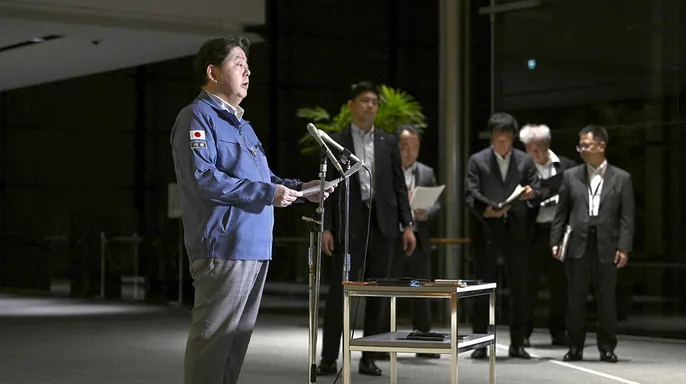In an unprecedented series of events, Japan’s Self-Defense Force (SDF) took decisive action after a Russian military aircraft violated its airspace multiple times. The patrol aircraft reportedly entered Japan’s airspace over Hokkaido’s Rebun Island on three separate occasions in one day, prompting a swift response. This situation marked a historic first for Japan, as it was forced to fire flares during an airspace violation, a rare occurrence that underscores the growing tensions in the region.
Repeated Incursions Over Rebun Island
On Monday, a Russian patrol aircraft violated Japanese airspace not once but three times. The violations occurred near Rebun Island, a small landmass off the coast of Hokkaido. In response, Japan’s SDF immediately scrambled fighter jets to intercept the aircraft. The response was not taken lightly, and according to government officials, it was the first time Japan had fired flares in defense of its airspace. “It is the first time Japan’s SDF aircraft has fired flares in an anti-airspace violation action,” stated government spokesperson Yoshimasa Hayashi.
Japan’s Defense Force Takes Action
Japan’s SDF deployed two advanced fighter jets, the F-15 and F-35, to respond to the repeated airspace violations. Defense Minister Minoru Kihara explained that the SDF pilots took several steps to warn the Russian military during the third incursion. “The SDF fighter jets – F15 and F35 – warned the Russian military over the radio before firing the flares during the third incursion,” Kihara told reporters. These measures were intended to signal Japan’s serious stance on defending its territorial integrity.
Diplomatic Protests to Russia
Japan has taken firm diplomatic steps in response to these violations. Following the incidents, the Japanese government formally protested to Russia through diplomatic channels, urging Moscow to take immediate steps to prevent such occurrences in the future. The demand was clear: Japan will not tolerate violations of its airspace, and it expects Russia to respect international laws regarding territorial sovereignty.
Growing Concerns Over Regional Tensions
This incident highlights the increasing tensions in the region, particularly between Japan and Russia. While Japan typically handles such violations through diplomatic means, the use of flares in response marks a significant escalation. As the situation develops, both nations must work to prevent further incidents and maintain peace in the region.
Japan’s swift response to the airspace violations sends a strong message to the international community: Japan is prepared to defend its borders and will not hesitate to act when necessary.
Japan’s unprecedented move to fire flares in response to airspace violations signals a new chapter in its defense policy. The repeated violations by a Russian patrol aircraft serve as a stark reminder of the growing geopolitical tensions in the region. As Japan protests through diplomatic channels, it remains to be seen how Russia will respond to this serious breach of sovereignty. For now, Japan has made its stance clear – any future violations will not be taken lightly.







